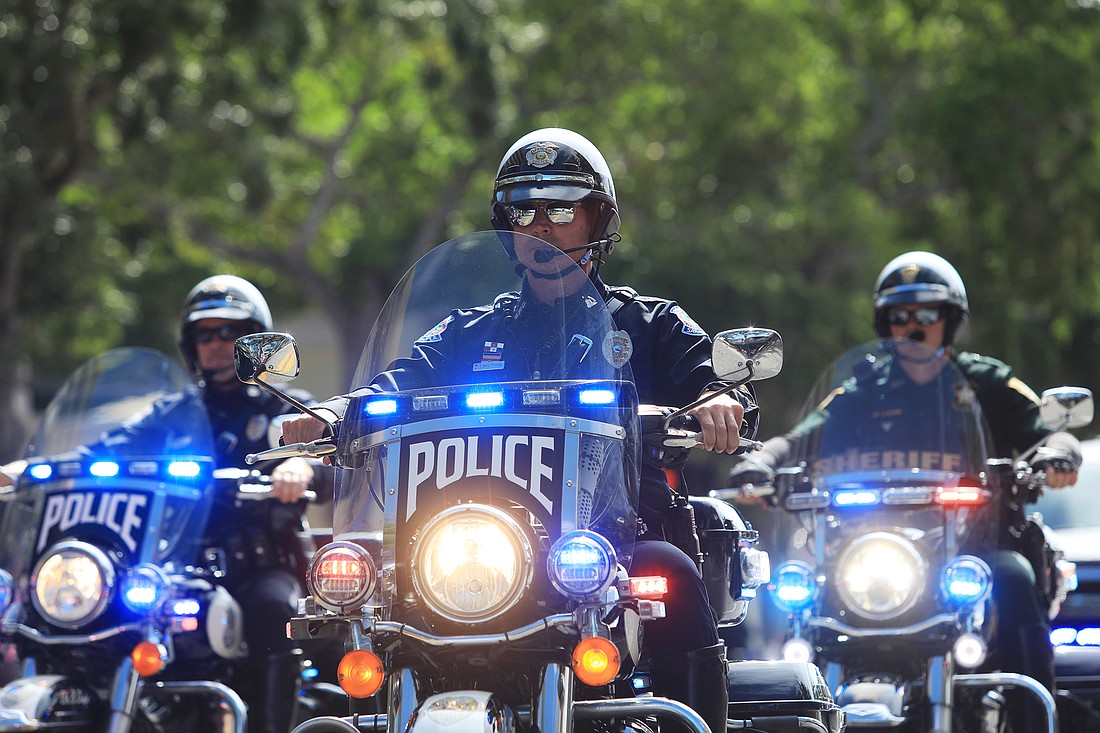- November 25, 2024
-
-
Loading

Loading

With the three-year collective bargaining agreement for all 178 members of the Sarasota Police Department expiring Oct. 1, the union representing them has accused the city of showing no sense of urgency to come to terms.
The city, meanwhile, maintains it is negotiating in good faith and in accordance with state statute.
International Union of Police Associations Local 6045 President Eric Urbain last week circulated an email to the media saying the city has slow-walked the negotiation process since February, when the union requested meetings to begin.
The city offered a different take.
“Since February 2022, city management representatives have regularly participated in multiple negotiation sessions with the IUPA bargaining unit,” read a statement released by the city. “From the beginning, we have negotiated in good faith and in accordance with Florida Statute 447, which outlines collective bargaining practices. We have been active participants, responded to numerous proposals and listened to the IUPA members during the negotiations.”
The union’s primary objectives are to achieve wages competitive with other police agencies in the Tampa Bay region, and to establish practices that provide the union with greater involvement in discrimination claims. Urbain said the city has “flat out rejected” the latter, citing issues alleged by two officers of a minority class.
“We’re hemorrhaging officers from our agency to others that are higher paying,” Urbain said. “We have the lowest number of officers on the street in 10 years, and they’re being asked to do more with fewer. We see that the tax base is here, that the revenues are here and we are on par with the tax base of Tampa. I understand that it’s a larger city, but we’ve got a smaller agency, so as far as the compensation per officer, it should not be a difference.”
In addition to patrol officers, IUPA 6045’s membership includes sergeants and criminalists. Urbain said lieutenants are in talks to become part of the union as well.
“With staffing shortages it’s difficult to get leave, and that affects morale, wellness and mental health,” Urbain said. “Compensation packages similar to Tampa and St. Pete will help relieve the hemorrhaging of officers.
“We've got a critical manpower shortage that we cannot address.”
In its response to the manpower matter, the city said SPD has 13 sworn officer openings, 10 of them additional positions approved for the current budget year and is processing 10 applications for those vacancies.
According to the union, first-year pay for an SPD patrol officer is $52,621, a sergeant is $73,554, and a lieutenant $91,052. Figures supplied by the city, though, show starting pay for a patrol officer is $55,826, rising to $78,534 after 20 years of service, and a sergeant $78,033, $91,701 after 20 years. Starting pay for lieutenants is $91,052, but the city says none of SPD’s nine lieutenants earn less than $99,121, which occurs at the four-year mark of that rank.
There is an explanation for the differences. The compensation figures shared by the city are for protected union members and those who have successfully exited probation. The department hires some second-class probationary officers who are not protected by the union, and the wage scale doesn’t apply until they successfully exit probation, which can take from 12-18 months.
Above an annual 3% cost of living increase, in the existing contract there is a 2.13% annual step increase for officers and sergeants and a 2.64%-2.95% increase for lieutenants, depending on which step number they are on.
A step increase represents the next level of compensation seniority within the same rank.
Years 12-19 show wages frozen at $77,273 for patrol officers and $90,441 for sergeants before a slight uptick in year 20.
In the existing contract, there were no step increases after year 12 until year 20. Those individuals, however, remain eligible for the annual 3% increase applied to all employees in those years.
Starting pay for criminalists is $36,648, rising to $45,801 in eight years, and senior criminalists start at $51,661, rising to $67,444 in eight years.
The current agreement also included a bonus structure.
Officers, sergeants, criminalists and senior criminalists who worked 12 months of fiscal year 2018 and had fewer than five years of service received a one-time lump sum payment of $1,500 at the start of fiscal 2019. Those with more than five years received $3,000. In addition to the 3% base pay and requisite step increases, personnel achieving those same benchmarks received equal bonus payments at the start of fiscal 2020.
The union also demands removal of anti-discrimination inquiries from solely under the city’s purview. Urbain said a proposal modeled after other law enforcement agencies in the region, which allows investigations to be reviewed by the union’s attorney, was dismissed out of hand.
“That’s important to us because we've got a somewhat of a diverse agency,” he said. “We’ve got a trans officer who's starting a family. We've got a lesbian officer who was recently deployed with the military and experienced issues. We're just wanting to address those and curb any problems.”
Relying on the city human resources department to investigate and adjudicate discrimination claims, Urbain said, particularly when compensation for the aggrieved party might be involved, represents a conflict of interest.
To that matter, the city replied in a statement: “The city of Sarasota does not discriminate on the basis of race, color, religion, sex, pregnancy, national origin, age, disability or marital status. These classes are already protected under state and federal law as well as local ordinance, and the city abides by those regulations in all its employment-related decisions.”